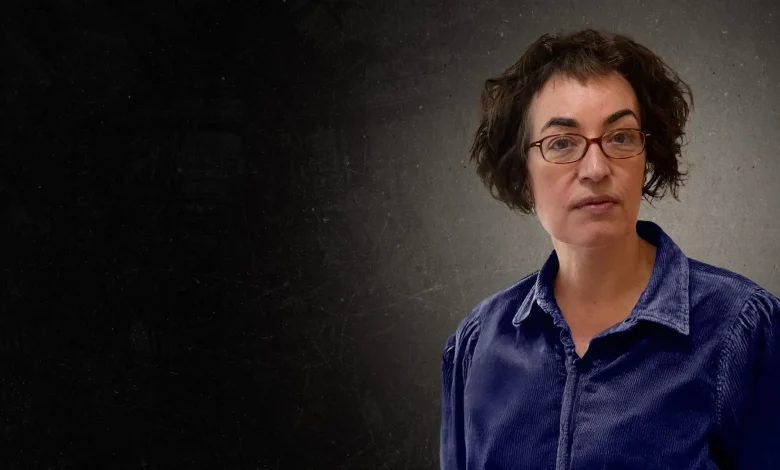Uncancelled at last

Cancellation is very much as you might imagine: a pit of utter despair. It does, though, have stages. And over the four years since I was cancelled for being racist, classist and ableist — or at least that’s what the sensitivity readers of my memoir Some Kids I Taught and What They Taught Me thought — I think I may have passed through them all.
There is the time when you can hardly bear to go out, so heavy is the weight of shame that you cringe against walls and creep through the streets. Then you start to behave more normally but develop Post-Traumatic Embitterment Disorder (PTED). The affliction trails you everywhere, whinging like an anxious dog. It pisses in every corner and gets in your lap any time you have a drink. It barks at kind people trying to help you or licks their hands slavishly. You mustn’t feed it but you do. Sometimes fate hands it a bone. When two friends removed my name from the acknowledgements pages of their prize-winning books, my PTED howled until the neighbours woke up.
You have to get away from it. You have to get on. This year, I toughened up, got off the chair I had been cowering in for all these years, and painted my study yellow. The BBC reached out to interview me for a podcast. I didn’t wince; I am probably a good test case to talk about the culture wars. And then I was asked to take part on a panel, to do a couple of school workshops. I started to feel a little like my old self.
Along with the podcast, which was broadcast this week, I received an apology from my publishers, Pan Macmillan. I didn’t expect that, but I somehow found myself able to sit on my only faintly growling PTED and receive that apology calmly. I genuinely think Joanna Prior, the new CEO, is right to put what happened to me in the past. My grudges must somehow be put there too, or the PTED will dog me for life. What I needed, I have said, is a freer, saner discussion of the past.
So I’m starting again, here in UnHerd with another visit to my sensitivity readers. They seem to be rather fading from public consciousness. In 2021, they were a very hot topic and often all anyone asked me about the furore: writers genuinely feared a new board of censorship. Besides, the essay I wrote back then felt like the last good thing I wrote before I went into darkness. That was the last time I made a lot of people laugh.
Though perhaps even that was unfair of me, a little cheap. The sensitivity readers were poorly paid freelancers and also sitting ducks. They had been set up with Pan Macmillan to solve a problem for them. Having apologised for the “emotional anguish” caused by my book, Macmillan then considered recalling and pulping all the copies in bookshops and giving the proceeds to anti-racism charities. When this seemed too drastic, they settled instead on a new edition of the book, one with the “harm”, that word of 2021, removed. No one in the firm had read the book, though, so they recruited experts to find the harm: sensitivity readers who specialised in racism, ableism and the Middle Eastern diaspora.
It was a huge assignment because it was retrospective. The three readers had to justify the internet response: find something in the book to equal the many claims of eugenics, racism and ableism. They also had to demonstrate their own worth and the point of their new profession. They set off on their journey keenly enough with many scornful points on the first few pages of the manuscript. Then they found themselves in a book which was not only essentially liberal but also absolutely mined, sentence by sentence, anecdote by anecdote, with irony.
Of course, the results were comical. Hyperbole was the only place to go. All praise had to be “fetishising”; all criticism “demonisation”. To compare a small child climbing a tree to a koala had to be “explicit animalisation of the other”. Harm had to be found somewhere so one reader decided it was “harmful” for me to call myself a “soft target” because “this state of being a “target” is a real issue that minorities face daily, and being used so flippantly by a white person can wash the importance of that”. Another decided it was “harmful” to say that Scottish children are better than London children at spelling “wh” sounds — where, what — because of their accent. Even at the time the reasoning made me smile.
“The author states outright that… she is indeed comparing the two groups of pupils to assess who is ‘better’… Having it laid out in black and white that yes, your teachers do judge you, and yes, they find you lacking in comparison to others, can really hit people in the gut.”
Lines such as those were, I thought (pace dear sensitivity readers), soft targets for me, fun for my essay. I believed the underlying ideas of the reads — that words could harm, that books must educate — were temporary notions that would pass and so worth attacking for those reasons.
Reading them now, though, I don’t find it all so funny. I am struck, rather, by the loneliness the reads express, the shadow of the pandemic over them all. Silence, in their view, is better than the wrong person joining the conversation. Stories should be confined to the therapy room, only spoken by one teller, never recounted, never adopted or adapted. Thoughts are types of mental illnesses — a saviour complex, an identity crisis. No one can bear to read even the glimmer of a contrary argument. Malign prejudice is everywhere. Those are bleak as well as silly ideas, and yet how strongly they have stuck.
The readers, too, seem anxious to me now, rather than nasty. Or rather, nasty because they are anxious. They had been set an absurd task and were failing at it. The frustration shows in the way one reader becomes increasingly unmoored and incoherent as she progresses through the text, and abandons it halfway through.
Only a single reader made it all the way through the last chapter of my book. There he finds a series of infractions about the repeated use of the word “small” in relation to a Syrian child who has written a very grown-up sounding poem about war. Belittling stereotypes, he finds, “infantilising” and “animalising”. Granulation is so easy and shame so cheap. Why not read the poem, just once, and wonder? Besides, “small” is one of the glories of the English language, a word for “little” that we use for knobbly, close, personal things, a word infused with the tenderness we feel for pets and children but which can never be confused with lesser, or petty, a word that never carries scorn. Not to understand that — or to have put up barriers in the mind so you cannot hear it — seems so sad.
“Only a single reader made it all the way through the last chapter of my book.”
I wonder whether that reader still has a job. It’s certainly hard to believe anyone still employs him to write sheets of comments like:
“After initially stating that the radio debate spoke of compulsorary adoption, the end of the passage then, from the author’s voices, ponders whether compulsorary adoption is a tenable answer. (Thus I am merely flagging that this, abhorrent-to-some, mooted step is given potential credence by the author here)” (Sic)
Not because it is nonsense, or even because of the vibe shift, but because, since the advent of ChatGPT, no one writes like that. Which is both better and worse, because daft judgements may be combined with smooth, authoritative prose.
For example, last year, my student B, 25 and ridiculously gifted, sent his first novel off to a literary agent. A few weeks later, he received a surprisingly aggressive rejection letter accompanied by a reader’s report. His novel, the agent said angrily, represented women denigratingly. They all had low career aspirations and bad jobs. After so many years of supporting women in publishing, she wouldn’t be promoting that sort of stuff!
B was distraught. He felt, as he put it, that he was not just a bad writer but a bad person. He was also, justly, bewildered. His novel, set in a poor, post-industrial village, like the one he grew up in, did indeed centre on women doing badly paid jobs. But they are not scorned: B’s delicate, ironical, deceptively flat prose opens up a whole landscape of their complex feelings. How can that element — the writing — have been missed? The reader had spent plenty of time on the book — that was evidenced by her lengthy summary. Then we tried putting the novel through ChatGPT and came up with exactly the same lengthy summary.
That was in 2024. AI had already learned to summarise, and the agent’s reader, very possibly a recent graduate, knew how to shame. Maybe by now the operations are combined. Who knows how many of the plethora of AI-powered test readers, which promise to “clean up your creative writing in minutes” and turn it into “a professional text”, have also absorbed sensitivity principles? I’m sure AI now could readily search a book and give certain phrases offence ratings. It would miss context and satire, but so did my sensitivity readers, every time.
Maybe, even now, texts are being morally improved and rewritten by one app and then read and rejected by another on even more delicate moral grounds without any human reading them at all. Maybe that’s what the British literary establishment will spend its last hours doing as their handsome Edwardian edifices burn to the ground and the episode of “Some Kids versus the Sensitivity Three” becomes a tiny footnote in the story of The End of the Book. Not reading but shaming. I wouldn’t be surprised. Except that I believe in B. He is a good writer. His images sing, his every observation and phrase is spry, jolting and surprising. AI will never recognise that, but humans will. B is also a poet, and I sometimes quote him Auden, lines from In Memory of WB Yeats (1939) which the poet, capricious in old age, later removed. They are about Time, which “worships language” and has no morals at all.
Time, that with this strange excuse,
Pardons Kipling and his views,
And will pardon Paul Claudel,
Pardons him for writing well.
I can imagine only too easily what my sensitivity readers would have said about that.
I don’t know what Time will make of my writing yet. I’m not as confident as I am for B. I hope soon I’ll be able to inspire him with confidence in the wholehearted way I used to. Not yet, because I am too stiff and too lacking in confidence myself. I think this is the last stage of cancellation: it’s something like scar tissue, numbness with threads of pain.





